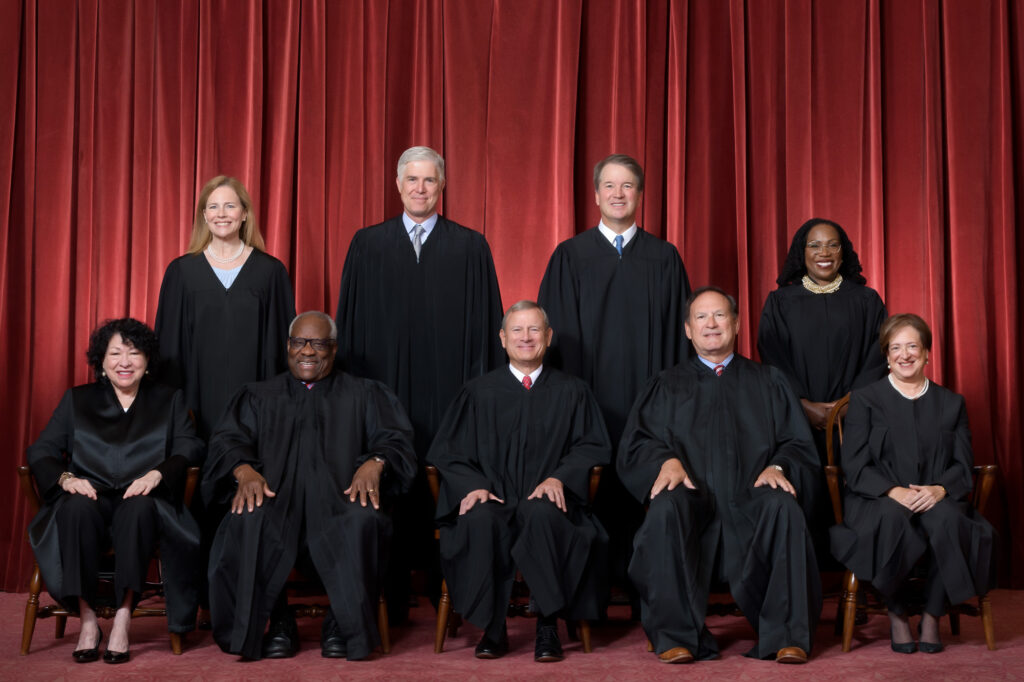The Legal and Medical Uncertainty in Post-Roe Texas Abortion Laws

In a recent decision, the U.S. Supreme Court let stand a lower court ruling that barred hospitals from performing emergency abortions if they violate Texas law. The justices provided no reasoning for their decision, and no dissenting opinions were publicly noted, according to Associated Press. This case is part of the ongoing debate surrounding Texas’ stringent abortion laws, which have grown increasingly complex since the overturning of Roe v. Wade in 2022.
Texas Abortion Law: Ambiguity and Strictness
Texas has one of the most restrictive abortion bans in the United States, only allowing the procedure when the life of the pregnant patient is at serious risk. However, the law’s lack of clarity has left many doctors concerned about when it is legally permissible to provide an abortion. While the law includes an exception for health risks, it remains vague about what qualifies under this provision. Despite calls from medical professionals for more specific guidelines, the Texas Medical Board has declined to outline which conditions meet the criteria for a legal abortion.
The Texas Supreme Court added further complexity by ruling that doctors do not need to wait until a woman’s life is in immediate danger before providing an abortion. However, the specific conditions qualifying for the health risk exception are still not clearly defined, leading to significant uncertainty.
Biden Administration and Federal Law: EMTALA’s Role
In response to Texas’ restrictions, the Biden administration argued that federal law—the Emergency Medical Treatment and Labor Act (EMTALA)—requires hospitals to perform abortions in emergency situations when a pregnant patient’s life or health is at serious risk. The administration pushed for the lower court’s ruling to be overturned, referencing similar legal battles, such as a case in Idaho, where emergency abortions were allowed to continue while litigation was ongoing.
The conflict between federal mandates and Texas law has resulted in confusion within the medical community. Doctors are increasingly concerned about providing necessary medical care due to fear of criminal prosecution. For example, medical conditions such as sepsis or organ failure can necessitate an abortion to save the patient’s life. Under Texas law, however, the legality of such procedures remains unclear, raising the stakes for medical professionals who could face prison time if they violate the ban.
Texas Lawsuit and Federal-State Tension
Texas escalated the conflict by suing the Biden administration, claiming that federal law cannot compel hospitals to violate the state’s abortion ban. In January 2024, the 5th U.S. Circuit Court of Appeals sided with Texas, ruling that the Biden administration overreached its authority in mandating emergency abortions under EMTALA. This decision exacerbated the ongoing clash between federal guidelines designed to protect patient health and state laws that impose severe restrictions on abortion access.
Emergency Medical Cases and Legal Risks
Reports from across Texas and other states with similarly strict bans indicate that pregnant women in medical distress are being denied emergency care due to confusion over the laws. Conditions like sepsis, organ failure, and severe pregnancy complications can arise rapidly, and historically, terminations have been part of the treatment for these conditions. Under Texas’ current legal framework, however, medical professionals are hesitant to perform life-saving abortions, as doing so could expose them to prosecution.
Idaho Case: A Parallel Legal Struggle
The Biden administration highlighted a similar case in Idaho, where emergency abortions were narrowly allowed to resume pending ongoing litigation. Idaho’s law at the time only permitted abortions to save the life of the woman, with no explicit exception for health risks. The key distinction between the Idaho case and Texas’ situation lies in the scope of their respective laws. While Idaho’s abortion law was less restrictive on life-threatening conditions, the confusion over health risks remains a common thread between the two.
Inferences and Broader Conclusions
Legal and Medical Uncertainty:
Texas’ abortion law is fraught with ambiguity, creating legal uncertainty for doctors and dangerous delays for patients. With no clear guidelines for when emergency abortions are allowed, medical professionals face immense legal and ethical dilemmas in providing care.
Impact of Roe v. Wade Overturning:
The 2022 Supreme Court decision to overturn Roe v. Wade has led directly to a surge in abortion restrictions in Republican-controlled states, including Texas. These new laws have sparked legal battles over the extent to which emergency abortions can be performed, leading to a fragmented and uncertain legal landscape.
Federal vs. State Conflict:
The Texas case highlights a significant conflict between federal and state law. While federal mandates like EMTALA require emergency care to protect patients’ lives, Texas’ abortion ban restricts the procedures that medical professionals can legally perform. This tension places both doctors and patients in precarious situations, with medical care and legal ramifications intertwined.
Vagueness of Texas Law:
The vagueness of Texas’ abortion law, especially regarding what constitutes a serious health risk, has left medical professionals hesitant to act. Without clearer guidance, the uncertainty leads to delays or denials of care, exacerbating the risks faced by pregnant patients in critical situations.

